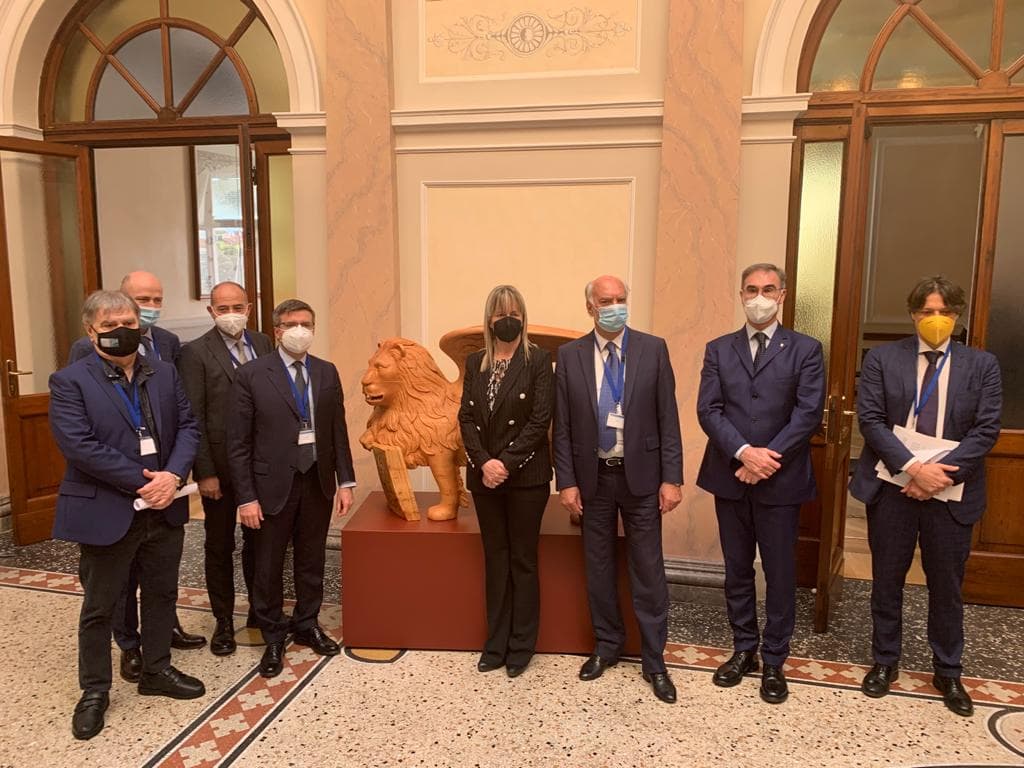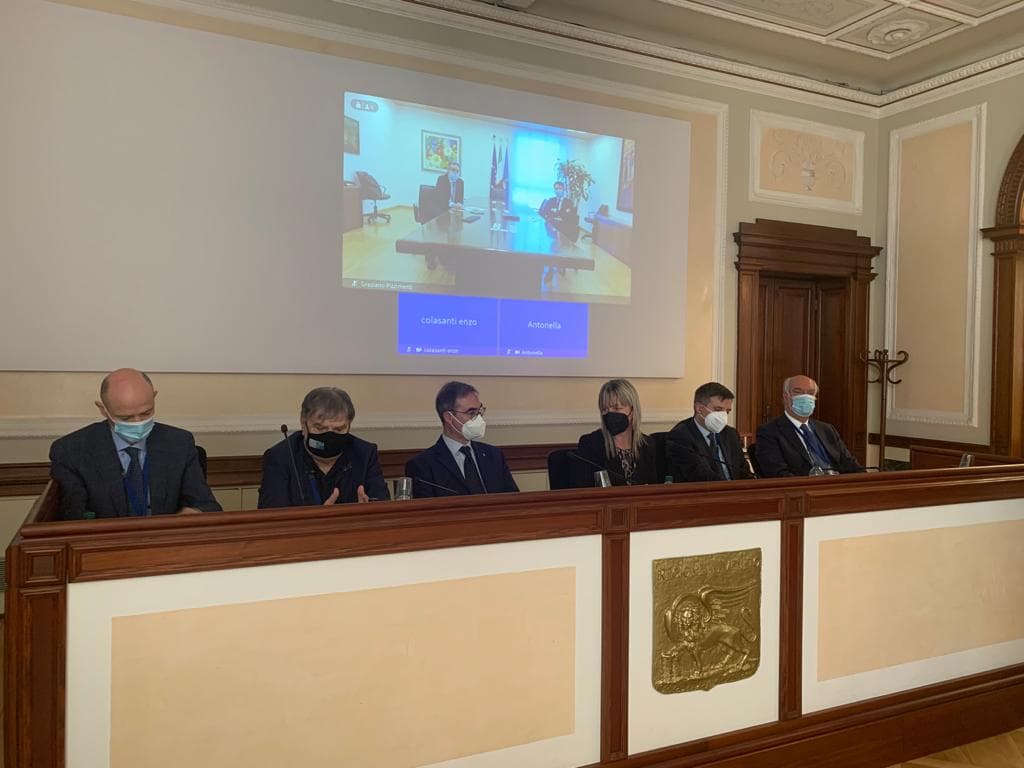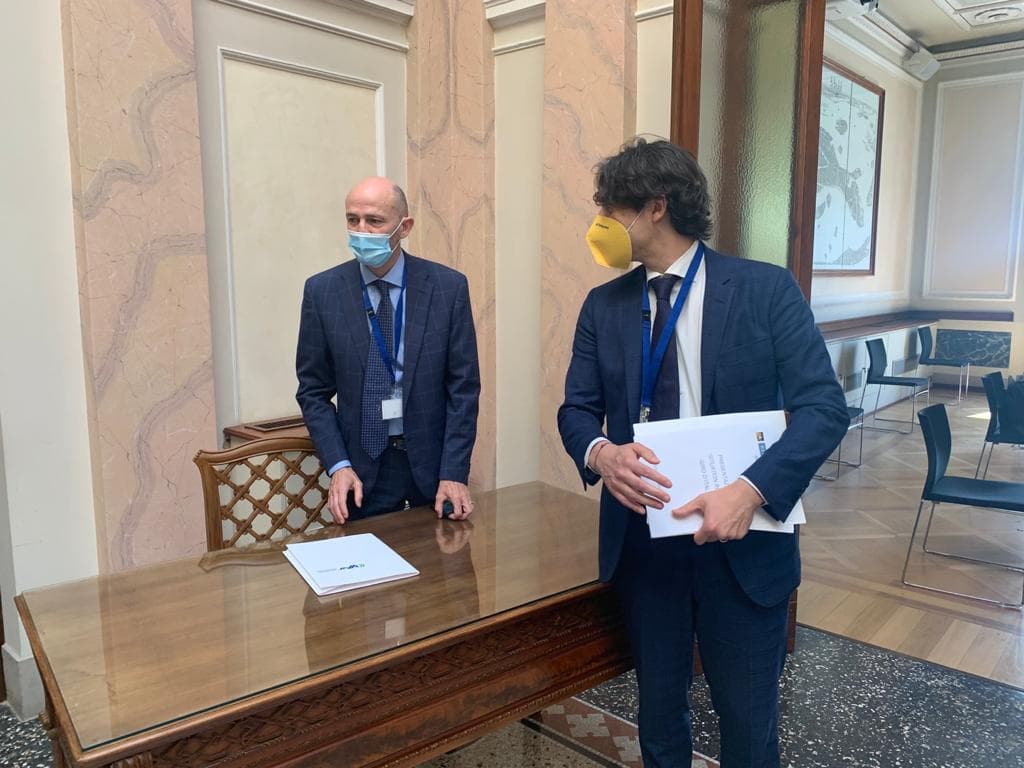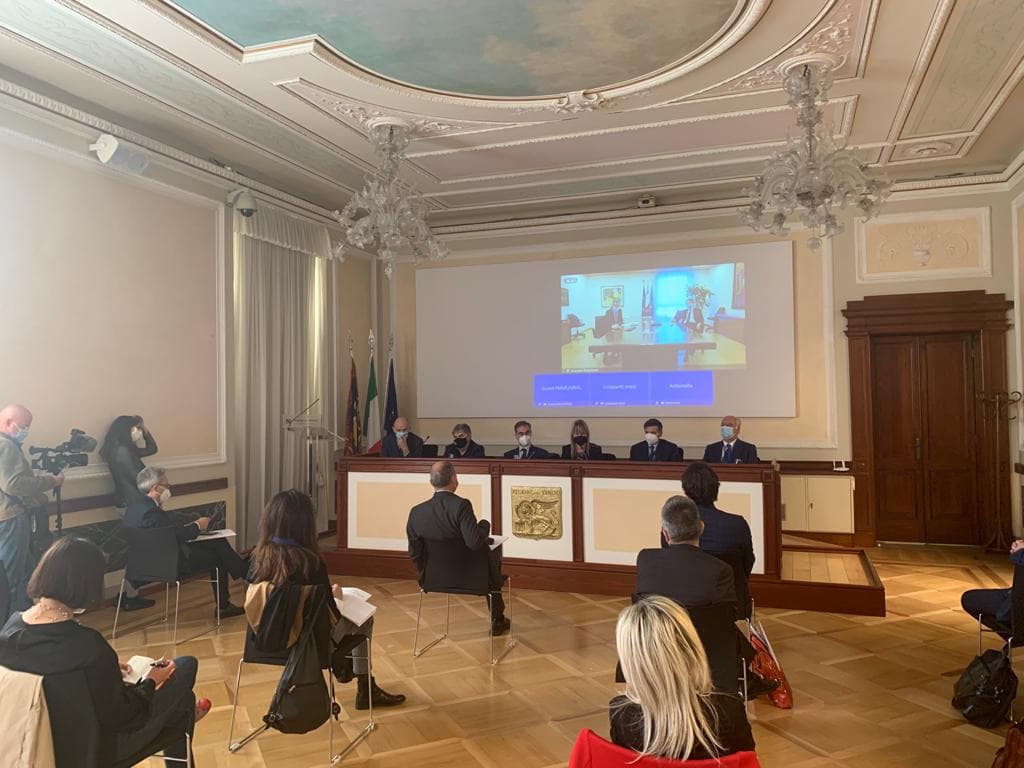Luca Zaia: We were ready for this incredibly exciting event. We embrace all the athletes and fans, who in the Veneto region are so many
Four stages, including the most eagerly awaited, difficult and fascinating of the famous pink race: 762 kilometres, 11,400 metres of altitude difference, passing through the most beautiful places in the North-East, including Verona, Cittadella, Castelfranco Veneto, Grado, Gorizia and Cortina, on the epic climbs that have made the history of cycling.
The Giro d'Italia in the North-East will also be a formidable opportunity to promote the Veneto and Friuli Venezia Giulia regions, a total event that will inevitably attract fans, enthusiasts, and onlookers from all over.
For this reason, replicating a format that worked well at the recent World Ski Championships in Cortina, the major mobility players of the Veneto and Friuli Venezia Giulia regions will work together to guarantee, on the occasion of the passage of the 104th edition of the Giro to the Northeast, the management of all aspects related to traffic, traffic monitoring, and user information.
A memorandum of understanding was signed this morning at the Palazzo Grandi Stazioni in Venice between the heads of ANAS (Gruppo FS Italiane), Concessioni Autostradali Venete-CAV S.p.A., Autostrada Brescia-Verona-Vicenza-Padova, S.p.A. Autovie Venete, Veneto Strade S.p.A., Friuli Venezia Giulia Strade S.p.A., Telepass S.p.A. and Infoblu S.p.A. (Telepass Group). The agreement, in close coordination with RCS Sport and the Veneto Region, which has called for collaboration between the major mobility players to ensure the efficiency of the entire system, aims to coordinate all aspects related to the impact on the road and motorway network during the passage of the Veneto and Friuli stages of the Giro d'Italia, scheduled for 21, 22, 23 and 24 May.
During the stages Ravenna-Verona (Friday 21 May), Cittadella-Monte Zoncolan (Saturday 22), Grado-Gorizia (Sunday 23) and Sacile-Cortina d'Ampezzo (Monday 24) it is foreseeable that the road and motorway network relating to the localities affected by the passage of the race may be subjected to considerable stress: in the preparatory phases of each single stage, during the same stage and in the event's demobilisation phase, the roads directly concerned will be closed to traffic and consequently the adjacent roads could be subject to significant overload.
To manage this scenario and in particular congestion and critical situations, traffic disruptions, road accidents, particularly adverse weather conditions and the location and availability of parking spaces in the locations affected by the passage of the race or side events, the companies will deploy their own personnel, vehicles and technologies to manage all aspects related to mobility and user information.
A shared platform, an access network, infomobility and communication systems and a common operational plan will be used: everything will be managed through a Situation Room set up at the headquarters of Concessioni Autostradali Venete in Mestre, with workstations and personnel from each company involved. In this way, the Situation Room will be able to manage every aspect concerning traffic, emergencies and infomobility related to the event, improving the quality and response times in the event of critical situations.
The project aims to provide a punctual, detailed and, above all, real-time traffic and road information service: through the official Giro website and app, it will be possible to access a section dedicated to the infomobility of the Veneto and Friuli stages of the Giro, where each citizen can view the traffic situation, any criticalities along the network, and the location of car parks, all thanks to a dynamic map that is always up-to-date and can be consulted at any time, which will follow the development of the race and will alert the user of events that may impact on local mobility.
In order to better manage all these aspects in the field, Concessioni Autostradali Venete will provide its Mobile Control Room, a mobile operations room equipped with cutting-edge systems and technologies to replicate the activities of the Mestre operations room on site, following the race and the movements of the pink caravan step by step.
The memorandum of understanding is born from the desire of all the companies and bodies involved to offer users coordinated, validated and consistent information on the practicability of arterial roads and on all events that may create traffic disruptions along the roads directly or indirectly affected by the passage of the Giro caravan. "The Giro d'Italia is a river of wheels, pedals, colours, fatigue, admirals, motorbikes, flowing on a very special bed, made of asphalt, like the roads of Italy and the Veneto region," explained the President of the Veneto Region Luca Zaia- and of the Veneto region, and of passion, like the one expressed by spectators and fans on their sides. A whole universe inextricably linked to a road that, precisely because of its very special function, must be safe, well paved, well marked in its eventual difficulties, it must become a stage. In all these years, in which the Giro has crossed the Veneto on several occasions, it has always found routes that have been maintained to perfection, renewed where necessary, designed in any case to host the cyclists, the caravan and the spectators in the best possible way. The roads of Veneto, with their efficiency, welcome the athletes and their teams in the best possible way again this year. In a certain sense, the asphalt ribbons also want to embrace the cyclists as fans and supporters are ready to do'.
Also satisfied was the Vice-President of the Veneto Region - Elisa De Berti – with the traffic control model tested during the World Ski Championships in Cortina. The experience of joint management between ANAS, CAV and Veneto Strade has proved to be a winning one, and for the Giro d'Italia it is extended to an interregional vision, also involving Autovie Venete, A4 Brescia-Padova, Friuli Venezia Giulia Strade, as well as Telepass and Infoblu. The 'Situation Room' represents the new technological frontier for traffic monitoring, also guaranteeing citizens an efficient, fast and real-time information service. The innovative Situation Room is an expression of the most virtuous synthesis between State and Region and goes in the desired direction of a unitary management of road and motorway traffic. It will be a Giro d'Italia that will bring a lot of movement to Veneto and traffic flow, and being able to move around safely with adequate information will undoubtedly benefit everyone. After this great event, we will not stop and we will look straight ahead to 2026, on the occasion of the Milan-Cortina Olympics, where coordination of the road system will be fundamental.









